Rehab for drug and alcohol addiction is a crucial step in recovery from addiction. It provides individuals with the tools and support they need to overcome their substance abuse and achieve long-term sobriety. However, one question that many individuals have is how long rehab lasts. The answer is not simple, as it varies based on the level of care and the individual’s specific needs and progress.
Inpatient Rehab
Inpatient rehab is a residential program where individuals live in a treatment center. This level of care is ideal for individuals with a severe addiction or a co-occurring mental health disorder that requires round-the-clock monitoring and support. On average, inpatient rehab programs last 28 to 90 days. However, some programs may last longer or shorter depending on the individual’s progress and needs.
The primary goal of inpatient rehab is to provide individuals with round-the-clock support, monitoring, and treatment. This happens through therapies, counseling, and other evidence-based treatment methods. The structured and supportive environment of inpatient rehab allows individuals to focus solely on their recovery without the distractions and temptations of everyday life.
Inpatient rehab programs typically offer a range of therapies and treatments, including individual and group therapy, behavioral therapies, and medication-assisted treatment. In addition, individuals are often encouraged to participate in recreational and educational activities, such as yoga, art therapy, and life skills classes, to help them develop new coping mechanisms and a healthier lifestyle.
One of the key benefits of inpatient rehab is the level of support and monitoring that individuals receive. This is especially important for individuals with a severe addiction or a co-occurring mental health disorder. They may require close monitoring and support to ensure their safety and well-being. Inpatient rehab staff are trained to provide the necessary support and treatment to help individuals overcome their addiction and achieve long-term sobriety.
Another important aspect of inpatient rehab is the peer support that individuals receive. Being surrounded by others going through similar struggles and experiences can be a powerful motivator and provide a sense of community and belonging. Individuals are encouraged to form supportive relationships with each other, which can help them build a strong support network and stay motivated on their journey to recovery.
Drug and Alcohol Detox
Detox is the first step in rehabilitation and involves removing the substance from the individual’s body. This process can be physically and emotionally challenging, as the individual may experience withdrawal symptoms. Detox typically lasts anywhere from a few days to a week. However, the duration will vary based on the substance and the individual’s specific needs.
Although detox is a crucial step in recovery, it can also be physically and emotionally challenging. As the substance leaves the body, the individual may experience withdrawal symptoms, ranging from mild to severe, depending on the substance and the individual’s specific needs. Withdrawal symptoms can include physical symptoms such as tremors, headaches, and nausea and emotional symptoms such as anxiety, irritability, and depression.
The detox duration will vary based on the substance and the individual’s specific needs. For some substances, such as alcohol and benzodiazepines, detox can last anywhere from a few days to a week. For other substances, such as opioids and methamphetamine, detox can last several weeks or longer.
It’s important to note that detox should only be attempted under medical supervision, as withdrawal symptoms can be dangerous and even life-threatening in some cases. Medical professionals, such as doctors and nurses, will be able to monitor the individual’s health and provide any necessary medications to help manage the withdrawal symptoms.
After the individual has completed detox, they can move on to the next rehabilitation stage, which may include inpatient rehab, outpatient treatment, or partial hospitalization programs. The treatment choice will depend on the individual’s specific needs and addiction severity.
Outpatient Treatment
Outpatient treatment is a level of care where individuals attend therapy and counseling sessions regularly but do not live in a treatment center. This level of care is ideal for individuals with mild to moderate addiction and who have completed inpatient rehab or detox. Outpatient treatment can last anywhere from a few weeks to several months, depending on the individual’s progress and needs.
Outpatient treatment is ideal for individuals with mild to moderate addiction who have completed inpatient rehab or detox or are not ready or able to commit to inpatient treatment. It provides a flexible option for those who want to continue their daily lives while receiving the support they need to overcome addiction.
The length of outpatient treatment can vary depending on the individual’s progress and needs. For some individuals, outpatient treatment may last a few weeks, while for others, it may last several months. The duration of treatment will depend on factors such as the individual’s level of addiction, the type of substance they are addicted to, and their overall health and well-being.
During outpatient treatment, individuals will receive individual and group therapy and counseling. They may also participate in additional activities, such as support groups, educational classes, and recreational activities. These activities help them overcome their addiction and improve their overall well-being.
It’s important to note that while outpatient treatment provides a flexible option for recovery, it requires a significant level of commitment and discipline from the individual. Individuals must be willing to attend therapy and counseling sessions regularly. They will also participate in additional activities and make changes to their daily lives to support their recovery.
Partial Hospitalization Programs
Partial hospitalization programs (PHPs) are a type of outpatient treatment that provides a higher level of care than traditional outpatient treatment. They help those with serious addiction and mental health issues who need more support than regular outpatient treatment.
In PHPs, individuals attend therapy and counseling sessions during the day and return home in the evening. This level of care is ideal for individuals who have completed inpatient rehab or detox but are not yet ready to transition to traditional outpatient treatment. PHPs serve as a bridge between inpatient and outpatient care, providing individuals with the support they need to continue their recovery journey.
The length of PHPs can vary depending on the individual’s progress and needs. Most PHP programs last for about 28 days. The duration of treatment will depend on a few factors. These factors include the individual’s level of addiction, the type of substance they are addicted to, and their overall health and well-being.
During PHP treatment, individuals will receive individual and group therapy, counseling, and additional activities designed to support their recovery. They will also have access to 24-hour support from medical professionals, should they need it. It’s important to note that PHPs require significant commitment and discipline from the individual.
Finding the Right Option for You
The length of rehab varies based on the level of care and the individual’s specific needs and progress. Inpatient rehab programs typically last 28 to 90 days, while detox typically lasts from a few days to a week. Outpatient treatment can last from a few weeks to several months. PHP programs usually last for 28 days. By understanding the different levels of care and timeframes, individuals can make an informed decision about their rehabilitation journey and achieve long-term sobriety.


